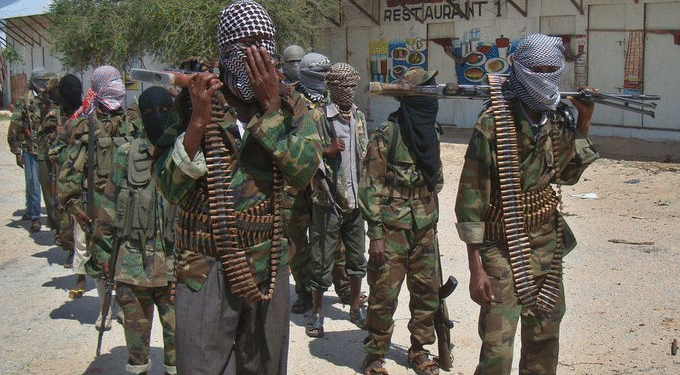Al Shabaab militants clashed with Somali government troops and allied forces on Thursday in a bid to seize control of a vital army base in central Somalia, officials confirmed. The fierce battle took place in Wargaadhi, Middle Shabelle region, a strategically important town that houses Somali soldiers, special forces, and local clan fighters.
Securing Wargaadhi would allow the al-Qaeda-linked insurgents to cut off a key highway connecting the capital, Mogadishu, 200 kilometers to the southwest, with Galmudug State, further consolidating their territorial gains in recent weeks.

While al Shabaab claimed in a statement to have captured the base and taken full control of Wargaadhi, Somalia’s information ministry countered that government forces had repelled the attack, killing over 40 militants in the process.
However, an army officer, Hussein Ali, told Reuters that the militants succeeded in capturing the town after intense fighting. “Our forces lost 12 men, mostly clan fighters, and around 20 al Shabaab fighters were also killed,” he said. “Eventually, al Shabaab received reinforcements and took the town.”
Ali noted the military’s difficulty in dispatching reinforcements due to al Shabaab’s control of surrounding routes.
Two government soldiers reported that by mid-morning, Somali forces, backed by air strikes, had managed to regain part of the town. However, Reuters could not independently verify the claims from either side.

The assault on Wargaadhi follows al Shabaab’s recent attack on Adan Yabal, a town previously used by the Somali military as a launchpad for anti-insurgent operations. Last month, the militants briefly captured several villages within 50 kilometers of Mogadishu, prompting fears that the capital could soon come under direct threat.
Although the Somali military has since retaken those villages, al Shabaab continues to gain ground in rural areas. The ongoing violence comes as questions loom over the future of international support for Somalia’s security forces.
Earlier this year, a new African Union peacekeeping mission replaced a larger regional force, but its long-term funding remains uncertain. The United States has voiced opposition to a proposed transition to a United Nations-backed financing model, casting doubt on sustained support for Somalia’s battle against the insurgents.









